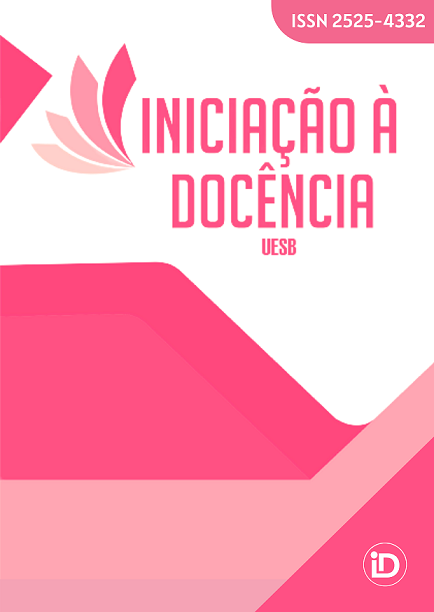Game Ping Pong Aritmético as a support in the teaching-learning process of basic operations: an experience report
DOI:
https://doi.org/10.22481/riduesb.v6i2.9846Keywords:
Ping Pong Aritmético, Mathematics, Basic operationsAbstract
The present work deals with the development and study of an educational digital game entitled "Ping Pong Arithmetic", applied to aid in the study of arithmetic operations in the first years of the final years of elementary school. The research conducted is characterized as a descriptive exploratory approach method. The pedagogical resource was used by 230 students from three public schools in Manaus - AM. The data collection was made from observations, questionnaires and interviews and counted with the collaboration of 23 academics of PIBID Mathematics of the Federal University of Amazonas - UFAM. The game was initially designed to be played in person, but due to the pandemic, the rules were adapted so that it could be played remotely. The application of the game showed at first the difficulty of the students with the basic operations and then an improvement in relation to these operations. The game had a positive evaluation from the students, who were willing to use this resource in their classes. Finally, the group dynamics allowed, even in these difficult times of pandemic, to provide a kind of "distance socialization", breaking the monotony of online classes.
Downloads
References
AGRANIONIH, N. T.; ENRICONE, JRB; ZATTI, F. Dificuldades no cálculo de divisão na 5ª série do ensino fundamental. X Encontro Gaúcho de Educação matemática, EGEM, RS-Ijuí. Anais, 2009.
FRANCO, T. C.; LORENZI, F.; PERES, A. Castelo da matemágica: um adventure textual aplicado ao ensino. In: SIMPÓSIO BRASILEIRO DE INFORMÁTICA NA EDUCAÇÃO, 25, 2014, Dourados. Anais do 25º SBIE. Dourados: UFGD, p. 288-296. 2014.
GALDINO, A. P. S. O conhecimento matemático de estudantes do 3º ano do ensino fundamental sobre o conceito de multiplicação: um estudo com base na teoria histórico-cultural. 2016. 110 f. Dissertação (Mestrado em Educação) - Universidade do Sul de Santa Catarina, Tubarão, 2016.
GONZATTO, M. A educação precisa de respostas. 2012.
JOHNSON, D.; MYKLEBUST, H.R. Distúrbio da Aprendizagem. Biblioteca Pioneira de Ciências Sociais, 5 ed. EDUSP, 2007.
KLEINA, N. O que é engine ou motor gráfico? TecMundo, 2021. Disponível em: https://www.tecmundo.com.br/video-game-e-jogos/9263-o-que-e-engine-ou-motor-grafico-.htm. Acesso em: 02/10/2021.
LEMES, D. O. Serious games – jogos e educação, Associação Brasileira de Editores de Livros Escolares, 2014. Disponível em: https://abrelivros.org.br/site/primeiro-resumo/. Acesso em 12/10/2021.
MADEIRA, C.; CÂMARA, L.; BESERRA, I.; TAVARES, R. Mathmare: um jogo de plataforma envolvendo desafios matemáticos do ensino médio. In: SIMPÓSIO BRASILEIRO DE JOGOS DE COMPUTADOR E ENTRETENIMENTO DIGITAL, 14, 2015, Teresina. Anais do 14º SBGames. Teresina: Sociedade Brasileira de Computação (SBC), p. 1042-1049. 2015.
MATOS, C. F. Modo de organização do ensino de matemática em cursos de pedagogia: uma reflexão a partir dos fundamentos da teoria histórico-cultural. 2017. 139 f. Dissertação (Mestrado em Educação) - Universidade do Sul de Santa Catarina, Tubarão, 2017.
MORAES, I. G.; COLPANI, R. Flip Math: um serious game como auxílio no ensino aprendizagem de Matemática Básica. Revista Brasileira de Computação Aplicada, Passo Fundo, v. 10, n. 2, p. 91-100. 2018.
MOURA, M. O. O jogo e a construção do conhecimento matemático. Publicação séries e ideias, p.45-52, 1992.
PEREIRA, A. L. O que é script? TecMundo, 2021. Disponível em: https://www.tecmundo.com.br/programacao/1185-o-que-e-script-.htm. Acesso em: 02/10/2021.
SANTOMAURO, B. Um novo jeito de ensinar a tabuada. Nova Escola. Ano XXVI. Nº 248. p. 36 – 43. Dezembro de 2011.
Downloads
Published
Issue
Section
License
Copyright (c) 2021 Revista de Iniciação à Docência

This work is licensed under a Creative Commons Attribution 4.0 International License.












